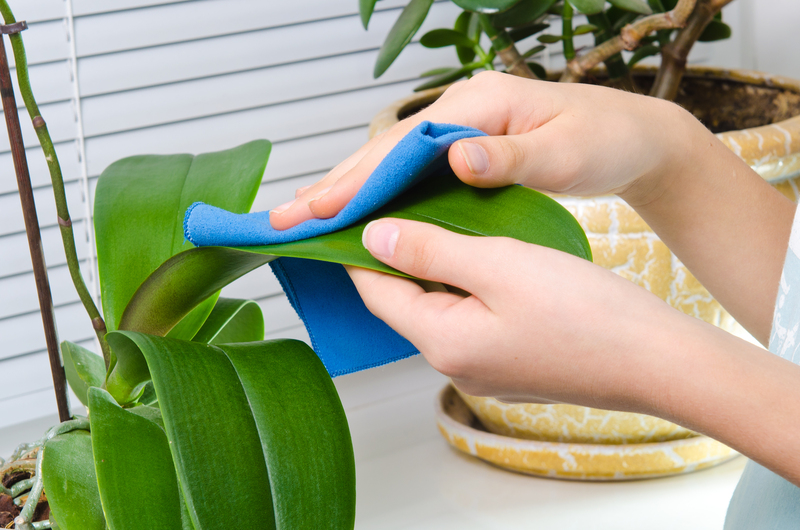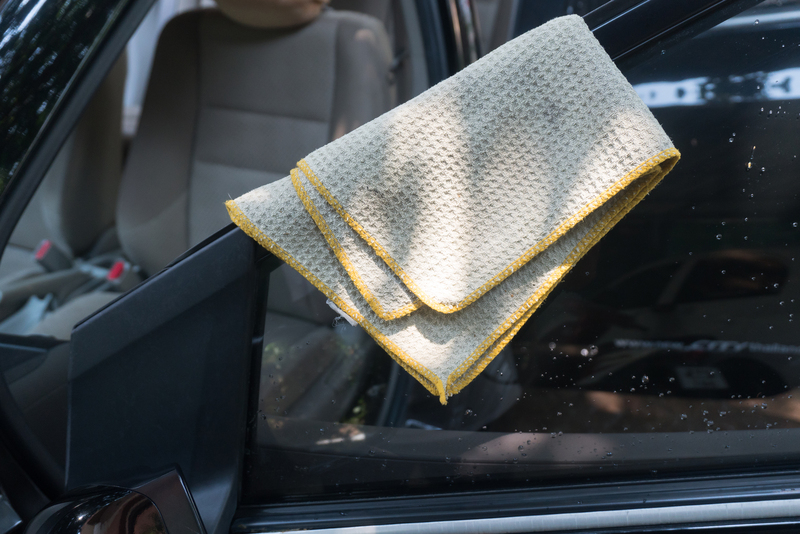How to Overcome the Persistent Damp Scent
Posted on 09/09/2025
How to Overcome the Persistent Damp Scent: A Comprehensive Guide
If you've ever walked into your home and been greeted by an unpleasant damp scent, you know how persistent and challenging it can be. Whether it's in your basement, bathroom, closet, or living room, that musty odor is not just a minor inconvenience--it's often a sign of a larger issue. In this guide, you'll learn effective methods to eliminate the persistent damp scent from your home for good. We'll address the root causes, practical solutions, and answer common questions about removing and preventing bad damp odors.
Understanding the Source of the Persistent Damp Smell
Before tackling the musty damp smell, it's important to understand what causes it. Identifying the root cause can save you time, money, and frustration in finding a permanent solution.
What Causes a Damp Odor?
- Excess Moisture: Whether from humidity, leaks, or spills, lingering moisture is the primary cause of musty smells.
- Mold and Mildew Growth: Damp environments are perfect breeding grounds for mold and mildew, both of which produce strong, unpleasant odors.
- Poor Ventilation: Inadequate airflow can trap moisture and create a stagnant environment where damp scents thrive.
- Water Damage: Flooding, roofing leaks, or old plumbing can introduce water into materials like carpet, drywall, or wood, allowing odors to develop.
Key takeaway: Persistent damp smells are usually a sign that moisture is present in or around your home.

How to Eliminate the Persistent Damp Scent: Step-by-Step Solutions
1. Identify the Source of the Moisture
You can't get rid of the damp smell until you find where the moisture is coming from. Common spots to check include:
- Basements
- Bathrooms
- Kitchens
- Laundry rooms
- Under sinks and around plumbing
- Window seals and doors
- Attics and crawlspaces
If you can't locate the moisture source, consider hiring a professional, as unnoticed leaks can cause costly damage over time.
2. Fix Leaks and Water Intrusion Issues
Address any leaks immediately! Repair dripping pipes, faulty seals, cracked walls, leaking roofs, or broken windows. Resolving the cause of moisture stops the scent at its source and prevents further issues.
3. Improve Air Circulation
Stagnant air lets humidity and odors accumulate. Boost ventilation in your home by:
- Opening windows and doors regularly
- Using exhaust fans in kitchens, bathrooms, and laundry areas
- Installing ventilators or air exchangers in damp-prone spaces
- Utilizing ceiling or floor fans to circulate air
Improved airflow encourages faster drying and prevents new odors from forming.
4. Use a Dehumidifier
Excess humidity is a leading culprit of the persistent damp scent. Running a dehumidifier in trouble areas can dramatically reduce moisture and help remove damp odors from the air. Set the humidity between 30-50% for best results.
5. Remove and Clean Mold or Mildew
- Wear gloves and a mask to protect yourself when cleaning.
- For small areas on hard surfaces: Scrub with a 1:10 solution of bleach and water, allow to sit for 10-15 minutes, then rinse and dry thoroughly.
- For porous materials (carpet, drywall, insulation, etc.): Remove and replace if mold is extensive, as it often cannot be fully cleaned from soft surfaces.
- Dispose of contaminated items properly to avoid spreading spores.
If you suspect a large-scale infestation, consult a professional mold remediation service.
6. Deep Clean Carpets, Rugs, Curtains, and Fabrics
Fabrics and soft furnishings soak up dampness and odors. To get rid of the musty smell from these items:
- Wash curtains and removable fabrics in hot water with laundry detergent and, if safe, a cup of vinegar or baking soda.
- Steam clean or shampoo carpets and area rugs. Allow them to dry completely in a well-ventilated area.
- For persistent odors, use an enzymatic cleaner or sprinkle baking soda liberally, let sit overnight, and vacuum thoroughly.
7. Clean and Disinfect Hard Surfaces
Mop, wipe down, or scrub floors, walls, countertops, and tiles. Use a strong household cleaner, or make a solution of vinegar and water (1:1 ratio) for a natural alternative. This not only removes odor but also kills off bacteria and mildew spores.
8. Utilize Natural Odor Absorbers
Once affected areas are dry and clean, use natural deodorizing agents to eliminate lingering damp smells:
- Baking soda: Place bowls or sprinkle on affected surfaces and vacuum after several hours.
- Activated charcoal: Put bags or open containers in problem areas to soak up smells.
- White vinegar: Set out open bowls for several days--vinegar neutralizes odors naturally.
- Coffee grounds: Fresh coffee absorbs and masks musty odors in enclosed areas like closets.
- Essential oils: A few drops in a diffuser can freshen the air post-cleaning.
9. Wash or Replace HVAC and Air Filters
If your home has central air or heating, change or clean the filters as persistent odors can circulate through your ductwork. Schedule duct cleaning if musty smells return regularly.
10. Prevent Future Damp Scents
- Keep humidity in check with regular use of a dehumidifier during wet seasons.
- Ensure all rooms, especially bathrooms, kitchens, and basements, are properly ventilated.
- Insulate pipes and exterior walls to reduce condensation.
- Store items in airtight bins rather than cardboard boxes in basements or attics.
- Clean gutters and downspouts to direct water away from your foundation.
- Routinely inspect for leaks or moisture and address them early.
How To Overcome Damp Scents in Specific Areas
Damp Smell in Basements
Basements are notorious for musty scents due to their location below ground level. To banish damp odors from basements:
- Seal foundation cracks and ensure the exterior grading directs water away from walls.
- Install a sump pump for flood-prone spaces.
- Use a commercial-grade dehumidifier and check drainage systems are clear.
- Store items off the floor and away from walls to improve air circulation.
Damp Odor in Bathrooms
Bathrooms can harbor damp scents due to steam and poor ventilation:
- Turn on the vent fan during and after showers.
- Wipe down wet surfaces immediately.
- Fix leaky taps or pipes under the sink or behind the toilet.
- Wash mats and towels regularly, and hang them to dry in the sun when possible.
Persistent Musty Smell in Wardrobes or Closets
- Check for hidden moisture, such as from exterior walls or damp clothes.
- Use moisture absorbers or silica gel packs.
- Place an open box of baking soda or a small bowl of activated charcoal inside.
- Leave the closet doors open periodically to let fresh air in.
Damp Scent in Carpets and Rugs
- Dry wet carpets immediately and use fans or a dehumidifier.
- If persistent, consider carpet replacement, as mold and mildew infiltrate the fibers.
- Sprinkle baking soda, let it sit, and vacuum well.
Why It's Important to Address the Damp Smell Promptly
A persistent damp scent is more than just a nuisance--it's a warning sign. Ignoring it can lead to:
- Mold and mildew problems that are harmful to your health--especially for allergy or asthma sufferers.
- Structural damage to wood, drywall, plaster, and insulation.
- Potential pest infestations.
- Lower property value and money lost in extensive remediation later.
- Unpleasant living conditions.
Acting quickly not only restores your home's comfort, but it also protects your family's well-being.

FAQs: Overcoming the Persistent Damp Scent
Can air fresheners or candles remove damp smells?
No. Air fresheners and scented candles may mask the odor temporarily, but they don't eliminate the underlying cause. You must tackle the moisture source for a permanent solution.
How long does it take to get rid of damp odors?
This depends on the severity and source. After addressing the underlying issue and cleaning, you might notice improvement in a day or two, but sometimes it can take a week or more for lingering odors to completely disappear.
Is it safe to use bleach on all surfaces?
Bleach is effective for non-porous surfaces like tiles, bathtubs, or sinks, but it can damage wood, some fabrics, or painted surfaces. Always check manufacturer's guidelines or test a small area first.
How do I prevent future damp smells in my home?
- Regularly inspect for leaks and fix them immediately.
- Maintain appropriate humidity levels with a dehumidifier.
- Use exhaust fans and ensure good ventilation.
- Clean regularly and keep things dry, especially in damp-prone areas.
Summary: Freshen Up Your Environment and Keep Damp Scents Away
Overcoming the persistent damp scent begins with recognizing the causes and tackling them head-on. It's not just about covering up the odor--it's about creating a clean, dry, and healthy living space. By following the steps outlined in this guide--and combining thorough cleaning, repair, and prevention methods--you'll regain fresh air and peace of mind in your home. If a musty smell lingers despite all efforts, consider seeking professional help to ensure your environment is safe and comfortable for everyone.
If you found this article helpful, share it with others who might be struggling with persistent damp scents in their homes. A fresh-smelling home is possible--start today!




